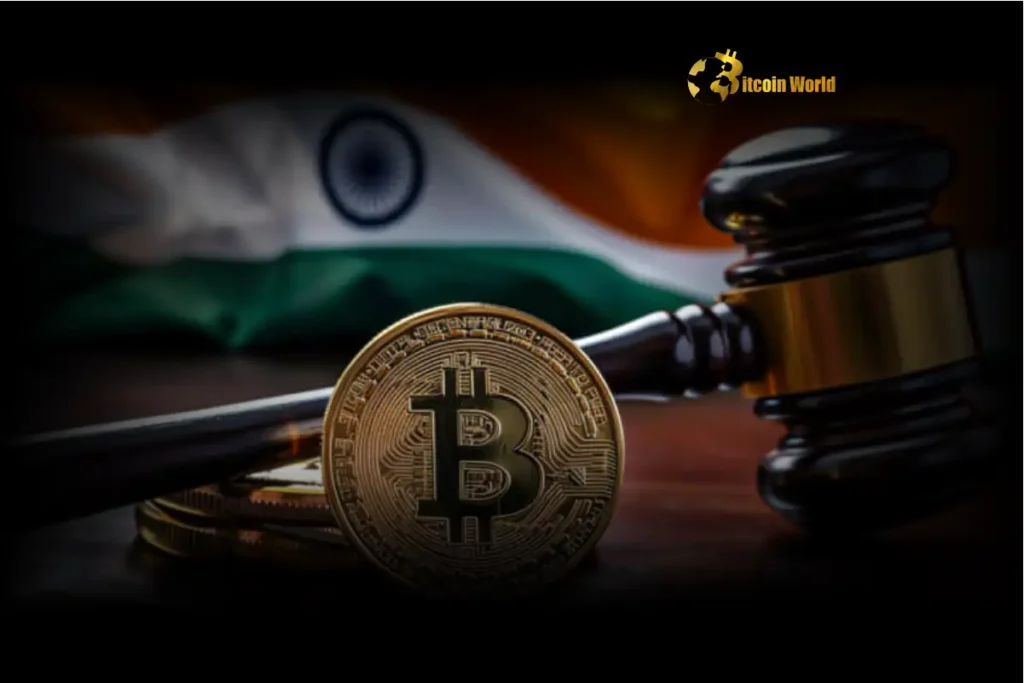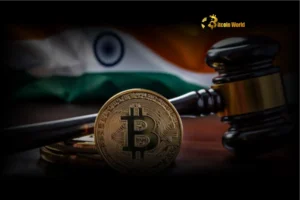India Crypto Regulation: Supreme Court’s Critical Call for Action, Warns Against Ban

BitcoinWorld
India Crypto Regulation: Supreme Court’s Critical Call for Action, Warns Against Ban
India’s stance on digital assets continues to be a hot topic, and the latest intervention comes from the highest judicial body. The Supreme Court has once again put the spotlight on the urgent need for India crypto regulation, voicing strong criticism against the central government’s prolonged inaction.
The Supreme Court’s Stance on India Crypto Regulation
According to reports from Hindustan Times, the Supreme Court didn’t mince words when addressing the government’s approach to cryptocurrencies. Their primary concern? The glaring absence of a clear legal framework. The Court highlighted that this vacuum has created an environment ripe for misuse, allowing illicit activities to flourish unchecked.
This isn’t the first time the Court has weighed in. They pointed out that they had previously directed the government to formulate a clear policy on virtual currencies nearly two years ago. The continued delay, in the Court’s view, demonstrates a “deliberate disregard” for a rapidly evolving and increasingly significant issue.
The message is clear: the current state of uncertainty surrounding India crypto regulation is unacceptable and harmful.
Why is a Crypto Ban India Considered Unwise?
Perhaps one of the most significant aspects of the Supreme Court’s statement is its explicit warning against an outright crypto ban India. The Court described such a move as “shortsighted,” particularly in the context of emerging new global financial systems.
Why is a ban seen as detrimental?
Global Integration: The world of finance is changing, with digital assets playing an increasing role. Banning crypto could isolate India from these global shifts and technological advancements.
Pushing Underground: An outright ban doesn’t eliminate crypto; it merely drives it underground. This makes it exponentially harder for authorities to monitor transactions, prevent misuse, and protect citizens.
Hinders Innovation: India has a burgeoning tech sector with significant potential in blockchain and cryptocurrencies. A ban would stifle this innovation and push talent and businesses to more favorable jurisdictions.
Loss of Opportunity: Regulation, not prohibition, allows a country to harness the potential economic benefits, such as investment, job creation, and tax revenue, from the crypto sector.
The Supreme Court’s view aligns with a growing international consensus that while crypto carries risks, a complete ban is less effective than implementing robust regulatory measures.
The Need for Clear Indian Crypto Law
The core of the Supreme Court’s argument rests on the necessity of a clear Indian crypto law. The current lack of legal clarity creates numerous problems:
Investor Risk: Without regulations covering exchanges, wallets, and transactions, individual investors are highly vulnerable to fraud, scams, and market manipulation. There are no clear avenues for redress.
Business Uncertainty: Crypto startups and businesses operating in India face immense uncertainty regarding their legality and future. This hinders growth, investment, and job creation within the country.
Illicit Activities: As the Court noted, the absence of a framework makes it easier for cryptocurrencies to be used for money laundering, terrorist financing, and other illegal purposes, posing risks to national security and financial integrity.
Taxation Challenges: The government loses potential tax revenue because there’s no clear legal basis or mechanism to tax crypto transactions and gains effectively.
A well-defined Indian crypto law would provide much-needed certainty. It could establish rules for exchanges, mandates for KYC (Know Your Customer) and AML (Anti-Money Laundering) procedures, clarify taxation, and provide a legal basis for handling disputes and prosecuting illicit activities. This would not only protect citizens but also legitimize the industry, potentially attracting domestic and international investment.
Navigating the Landscape of Cryptocurrency India
Despite the regulatory uncertainty, the adoption of Cryptocurrency India has seen significant growth. Millions of Indians hold or trade digital assets, attracted by the potential for high returns and technological innovation. India represents a massive potential market for the global crypto ecosystem.
However, this growth occurs in a grey area. Users navigate exchanges and platforms without the safety net of clear legal protections. Businesses operate under constant threat of adverse policy changes.
The Supreme Court’s intervention serves as a powerful reminder that this state of limbo cannot continue indefinitely. The potential benefits of Cryptocurrency India – from fostering fintech innovation to providing new investment avenues – can only be fully realized within a secure and regulated environment.
What Does This Mean for Supreme Court India and the Government?
The recent statement from the Supreme Court India places renewed pressure on the central government. It underscores the judiciary’s role in pushing for timely legislative action on critical issues that affect citizens and the economy.
The government has been deliberating on a crypto bill for years, facing the complex challenge of balancing innovation with potential risks. Their concerns often revolve around financial stability, monetary policy control (given crypto’s decentralized nature), and preventing illicit use.
However, the Supreme Court’s clear directive against a ban and its emphasis on the need for regulation suggest that the judiciary is losing patience with the prolonged delay. This could potentially prompt the government to expedite the legislative process or face further judicial scrutiny.
Challenges the Government Faces in Drafting Regulation:
Defining and classifying various types of crypto assets.
Developing effective oversight mechanisms for decentralized technology.
Ensuring coordination between multiple regulatory bodies (Finance Ministry, RBI, SEBI).
Balancing consumer protection with fostering technological growth.
Addressing cross-border nature of crypto transactions.
Despite these challenges, the Supreme Court India is signaling that continued inaction is a greater risk than tackling the complexities of regulation head-on.
Actionable Insights for the Indian Crypto Community
Given the Supreme Court’s stance and the ongoing regulatory uncertainty, what can individuals and businesses in the Cryptocurrency India space do?
Stay Informed: Keep track of news and potential legislative developments. Understand the current legal grey areas.
Use Reputable Platforms: Stick to well-known exchanges that implement KYC/AML procedures, even in the absence of explicit law.
Understand Risks: Be fully aware of the volatile nature of crypto investments and the lack of regulatory protection currently available.
Advocate for Clarity: Support industry bodies and initiatives that are engaging with the government to push for clear, sensible regulation.
Comply with Existing Laws: Pay applicable taxes (like the 30% tax on gains and 1% TDS) despite the lack of a comprehensive crypto law.
The Supreme Court’s statement is a positive sign for those hoping for regulation rather than a ban, but it also highlights that the path to a clear Indian crypto law is still a work in progress.
Conclusion: A Critical Juncture for India Crypto Regulation
The Supreme Court of India’s latest intervention marks a critical moment for the future of India crypto regulation. By criticizing the government’s inaction and explicitly warning against an outright ban, the Court has underscored the urgency of establishing a clear legal framework. The absence of such a framework not only hinders the growth and potential of Cryptocurrency India but also creates significant risks for misuse and investor harm.
The message from the Supreme Court India is unambiguous: the time for deliberation is over; the time for decisive action on Indian crypto law is now. How the government responds to this pressure will significantly shape the trajectory of digital assets in one of the world’s largest potential markets.
To learn more about the latest crypto market trends, explore our articles on key developments shaping Cryptocurrency India price action and institutional adoption.
This post India Crypto Regulation: Supreme Court’s Critical Call for Action, Warns Against Ban first appeared on BitcoinWorld and is written by Editorial Team







